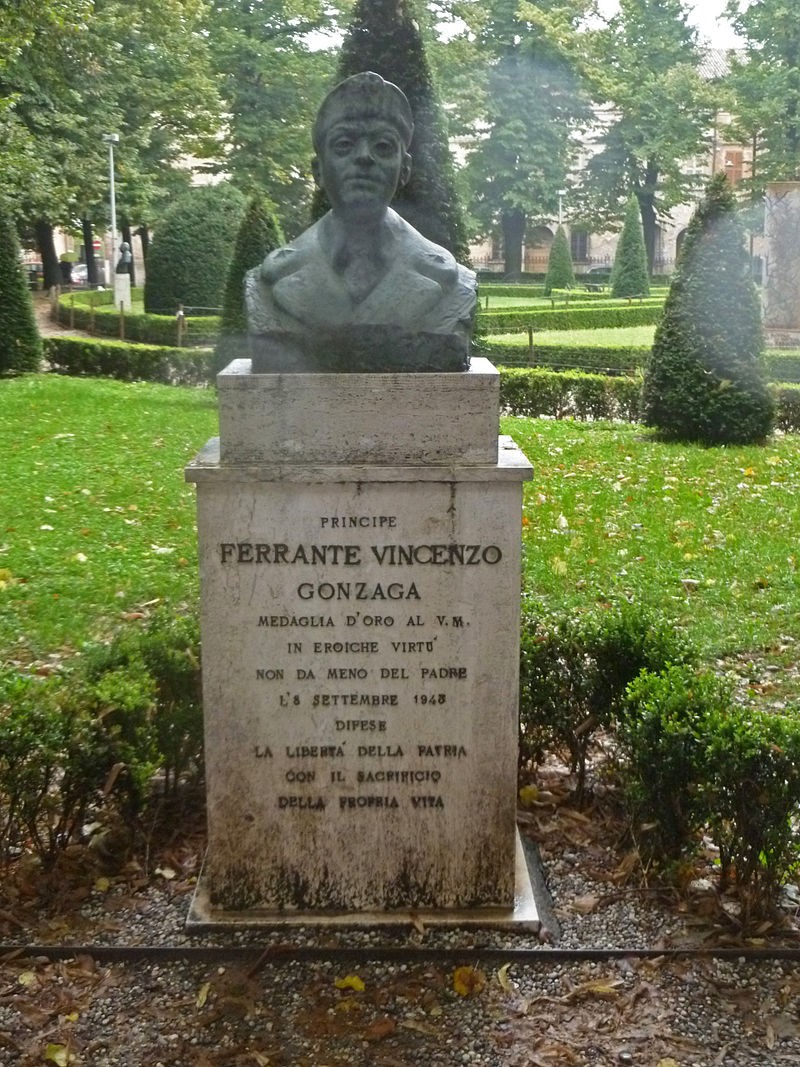After participating in the Libyan War and the First World War, he embarked on a brief military career and in the Second World War commanded the artillery of the 13th Army Corps in Cagliari.
On 10 February 1943, General Gonzaga was given command of the 222nd Coastal Division deployed in the Salerno area. After the armistice of 8 September, when the Germans ordered the disarmament of all Italian divisions, the general decided not to surrender his weapons to the Germans and to prepare for the Resistance. Near Eboli, the General was caught up with his unit by a German grouping that ordered him to surrender, which the General resolutely opposed. Threatened at gunpoint by the German officer, he insisted on his firm stance and, in turn, taking his hand to his gun, ordered his employees to resist the intimidation with their weapons, when an enemy automatic musket shot killed him instantly.’ In a letter to his sister dated 13 April 1943, the senior officer wrote: “I cannot describe the moments I am experiencing. And unfortunately we do not hear a word from above to hearten us. No one trusts the government anymore, various organisations have disbanded at the first danger; the farmers no longer deliver grain to the hoards, they put it in carboys and bury it. We have the impression of collapse." After the war, General Gonzaga del Vodice was given the name of the Foligno barracks where the Army's National Selection and Recruitment Centre is based, and a street in the town of Eboli.
